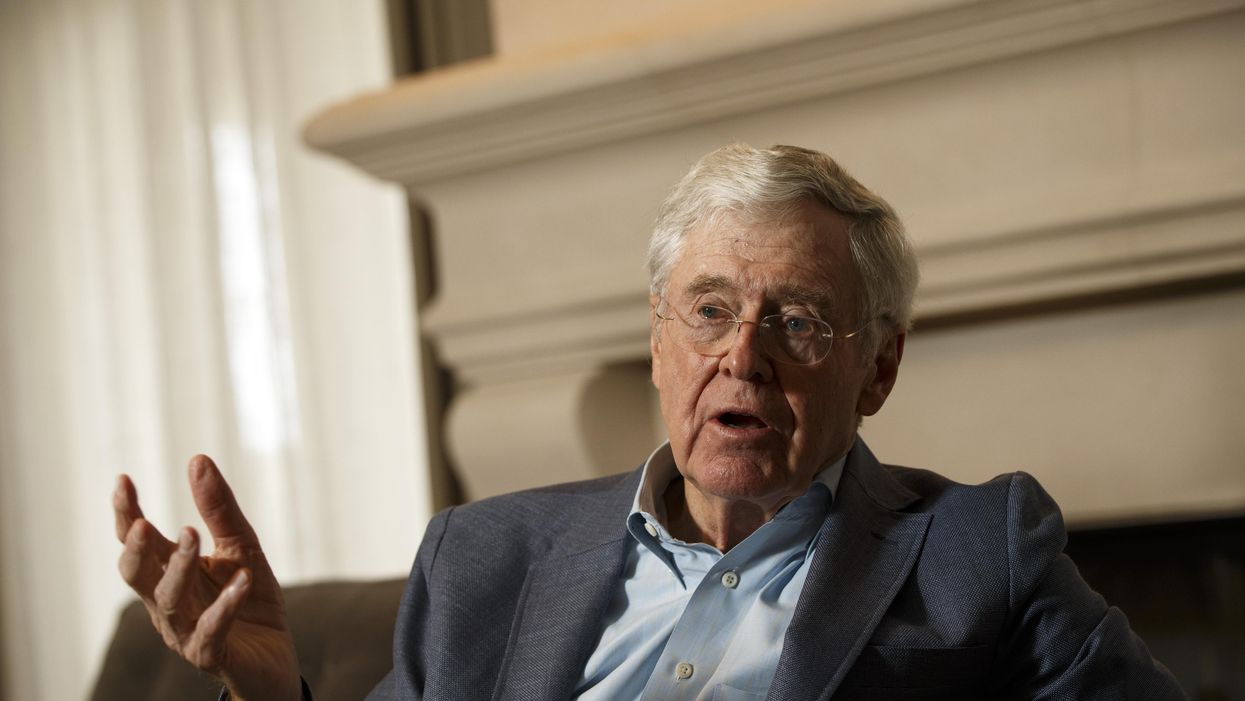Banks is executive director of UnKoch My Campus, which advocates for the elimination of undisclosed corporate financial influence over higher education.
Amid false claims of voter fraud and very real instances of voter supression, the 2020 election showed that our democracy is in need of an overhaul to create an electoral process that is fair, free of corporate influence and protected from discrimination.
That is why we the people are pushing Congress to pass the For the People Act, a revolutionary package of proven democracy reforms. The House is on course to pass the measure, also known as HR 1, this week.
But enacting this legislation could do even more than expand voting rights and election security. It might also be the key to finally disrupting Charles Koch and the larger dark money network that has succeeded at capturing our democracy over the past few decades.
We know what happens when dark money infuses itself in institutions that purport to benefit the common good — whether it's helping to install corporate-friendly justices on the Supreme Court, or creating university think tanks that produce climate misinformation that translates to lax environmental regulation. There has been plenty of work to investigate, name and organize against these sorts of outcomes.
And the work regularly confronts fresh areas for concern. Most recently, the whole country witnessed the incredibly violent result of the undue influence of Koch and other big corporate funders: The storming of the Capitol by Trump loyalists on Jan. 6, which for several hours disrupted the joint session of Congress for tabulating the electoral votes and certifying that Joe Biden had won the presidency.
Even after the riot ended, leaving at least five people dead, seven Republicans returned to the vandalized floor of the Senate and voted to overturn the results — in effect legitimizing the insurrectionists' cause.
The campaigns of each of those senators has been funded by the Koch network: Josh Hawley of Missouri, Ted Cruz of Texas, Tommy Tuberville of Alabama, Cindy Hyde-Smith of Mississippi, Roger Marshall of Kansas, John Kennedy of Louisiana, Cynthia Lummis of Wyoming and Rick Scott of Florida.
And despite the uproar from both sides of the aisle, Koch's spokespeople wouldn't even commit to no longer funding any of these complicit politicians.
It's no secret that networks such as Koch's thrive in secrecy, allowing for more money to flow to the politicians who will work to ensure corporate-friendly policies.
And, two days after the riot, the Supreme Court agreed to hear a challenge by the Koch network and another conservative group to California's requirement that tax-exempt charities disclose the identity of their top donors.
The political advocacy organization Americans for Prosperity, founded by Charles Koch and his late brother David, and the Thomas More Law Center argue that the state should not be able to compel such disclosures. While they claim infringement of their freedom of speech, what's really at stake is this: Without the shroud of secrecy of dark-money donations, the entire ugly underbelly of who the Koch network actually funds will be exposed.
So it's no surprise that HR 1 is truly the worst nightmare for the Koch network and others of their ilk. If passed, it would require secret organizations that spend money in elections to disclose their donors. It would also create a small, donor-focused public financing matching system so candidates for Congress would no longer be so reliant on big-money donors to fund their campaigns and set their priorities — meaning that it would be just that much harder for billionaires like Charles Koch to buy his way into the House and Senate. In addition, the For the People Act would strengthen oversight rules to ensure those who break campaign finance laws are held accountable.
Not only would fixing these financial oversights help return elections to the interests of the common good instead of the corporate elite, it could be the first step in shaking up the foundation of the Koch network's hold on our democracy.



















Marco Rubio is the only adult left in the room